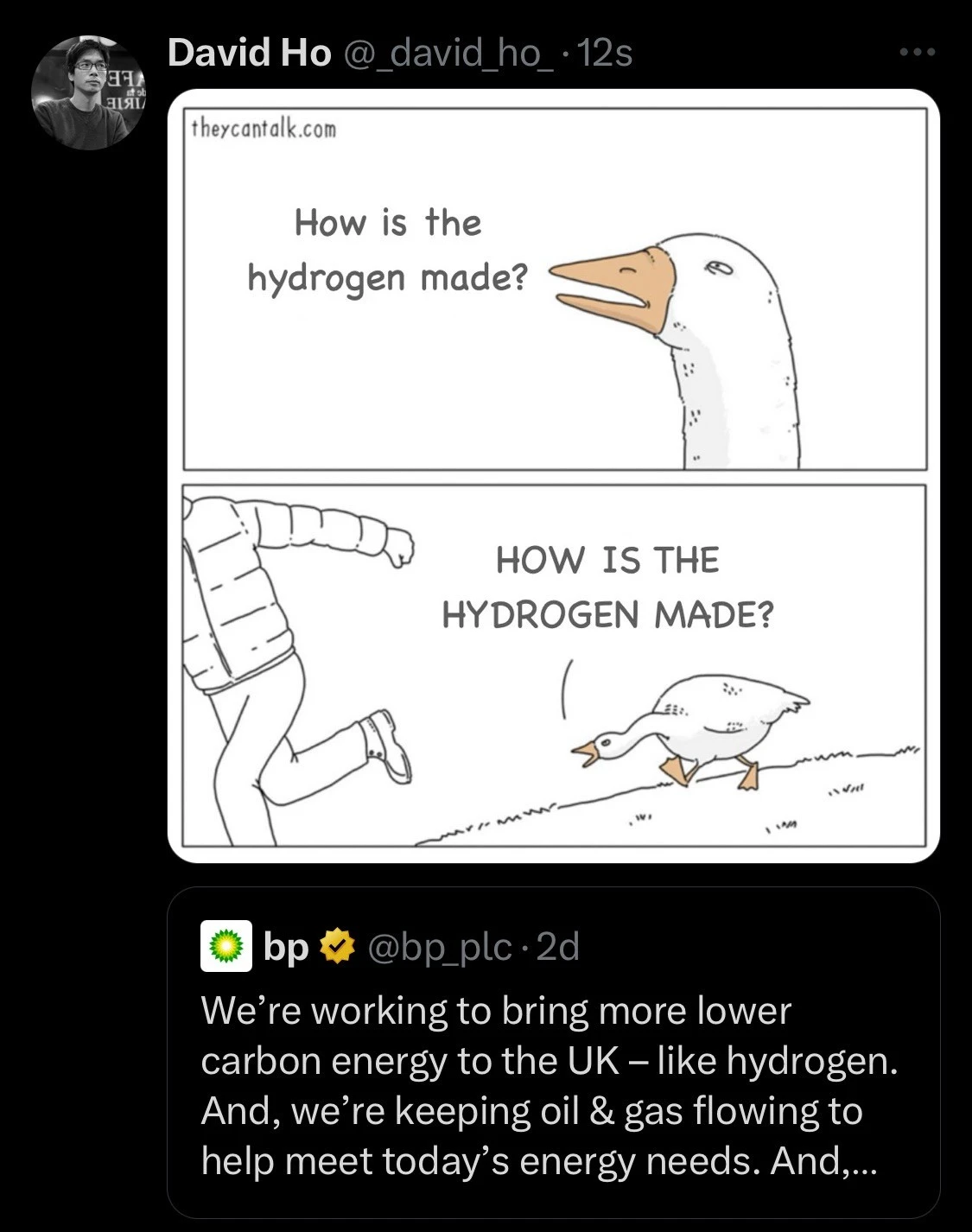this post was submitted on 12 Apr 2024
817 points (97.8% liked)
solarpunk memes
5743 readers
241 users here now
For when you need a laugh!
The definition of a "meme" here is intentionally pretty loose. Images, screenshots, and the like are welcome!
But, keep it lighthearted and/or within our server's ideals.
Posts and comments that are hateful, trolling, inciting, and/or overly negative will be removed at the moderators' discretion.
Please follow all slrpnk.net rules and community guidelines
Have fun!
founded 3 years ago
MODERATORS
you are viewing a single comment's thread
view the rest of the comments
view the rest of the comments

And this is still a large step in the right direction, because cheap hydrogen creates an incentive to develop hydrogen infrastructure, which increases the demand for hydrogen, and can help lay the groundwork for a future in which hydrogen is produced from renewable sources.
Also, steam reforming lends itself well to CCS, and as such it can be performed without carbon emissions.
There isn't a real need for hydrogen. We have plenty of other solutions. People have the expectation that our society changes from unsustainable to sustainable by just swapping in clean technologies in place of the dirty one's. That isn't going to happen, and hydrogen won't change that.
I mean it's not bad to have alternatives though.
My roomie is a trucker, and the idea of an electric truck is laughable, at least in my country, because of how trucking works here. Unless the truck is out of order, being loaded, or being refuelled, it's always on the road; they just swap drivers around like a relay race. Unless a truck came with a swappable battery it wouldn't be feasible to operate like that, they'd have to at least double their arsenal, (at which point we can already start to question how environmentally friendly that is), and that'll increase the overall operating costs, which will ultimately end up on the consumer; everything will get more expensive because that's what they transport. Another problem with pure electric is also that the batteries weigh a shit ton, so the trucks end up being able to transport less because they have to lug the battery around everywhere.
Biogas is an alternative, and as far as I know it works alright; they already use it. They end up not as powerful as diesel trucks though.
Something I wonder if it might be applied is something like Toyota's hybrid system, with regenerative braking etc. I wonder if it scales. My roomie recently had to leave his Golf at the shop for a week, and got it swapped with a Yaris. It cut his fuel consumption by three quarters.
The alternative to trucking is a better cargo rail system on electrified rail. Won't get rid of all long haul trucking, but it'll displace at least 70% of it.
Even if that doesn't happen, battery capacity improves by 5-8% per year. At the low end, that's a doubling every 15 years. We're not close to theoretical limits yet, so we can expect this to continue as long as we keep funding the research.
Solid state batteries are still some time away, but once those are on the market, they'll leapfrog everything. Good enough not just for trucking, but also airplanes, which was thought to be out of the question otherwise.
I find with a lot of workers in positions like that tend to focus on what exist right now. Then they sit around at a truck stop over coffee, reinforcing their opinions and laughing at battery trucks. They don't think about what's likely to happen over the next decade.
But still, trains are the way to go. The US needs to start that process by renationalizing the railroads.
Definitely. We already saw this with fucking natural gas
For energy it is terribly inefficient.
It would be nice to have green ammonia and methanol though.
Might've been a step forward 40 years ago. Today its finding a spot to dig in, so they can keep the fires of hell burning.
But they aren't capturing the carbon. They aren't storing it. It's supposed to be the easiest case of CCS and they dump the CO2 in the atmosphere
I strongly suspect that CCS is a lie aimed to make people happier to continue burning fossil fuels
using electrolysis for fuel cells would violate the laws of physics and thermodynamics